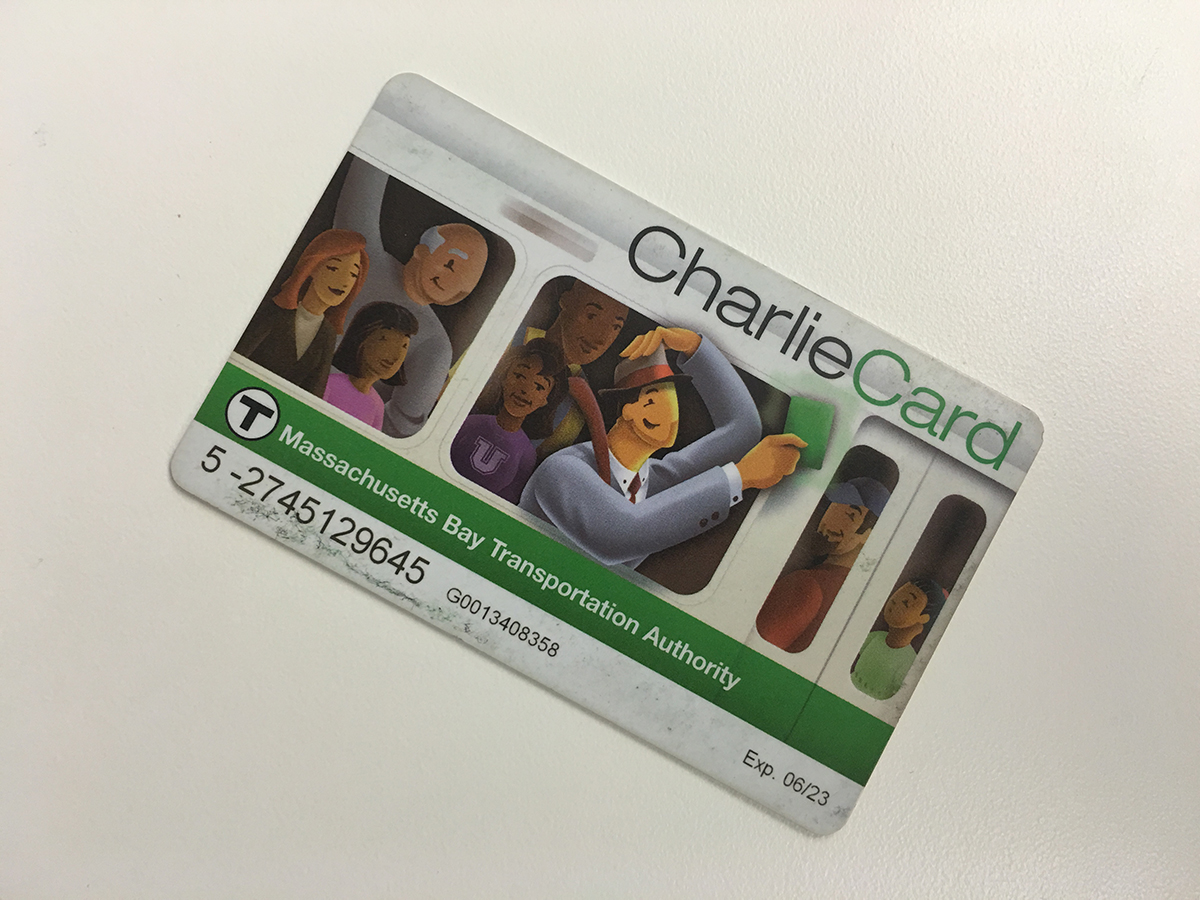Why Did the MBTA Raise Fares?

A MBTA Charlie Card for the MBTA by Garrett Quinn
On Monday, the board that oversees the Massachusetts Bay Transportation Authority voted unanimously to raise fares across the entire system by 9.3 percent. The move was not well-received, as protesters disrupted the event with loud chants decrying the fare hike. MBTA officials have discussed and signaled that a fare hike was likely for months, so none of this was much of a surprise. So here’s what it all means for you:
Why is the MBTA raising fares?
For starters, no major public transportation systems in the United States make money, including the MBTA. This pattern of failing to generate money while providing a public service has led to a sense of apprehension about how we fund public transportation. This attitude comes from a mix of deeply-rooted policy-making preferences that favor cars over people and fiscal hawkishness among those who control the purse strings.
It’s very unlikely that the MBTA will receive additional funds from Beacon Hill in the near future, so in order to close its existing $138 million budget deficit (down from $242 million), the cash-strapped agency needs to trim its budget and generate new revenue. The easiest way for the MBTA to generate a significant amount of revenue is by increasing fares. The MBTA’s current budget deficit projection includes a five percent fare increase. The 9.3 percent fare increase is expected to generate roughly $42 million in new revenues for the agency in a fiscal year.
“The vast majority of the MBTA’s budget comes from either statewide taxpayers or from riders, and there’s got to be a balance with asking taxpayers who never take the T to pay the bills and asking riders who use it every day to pay the bills,” said Transportation Secretary Stephanie Pollack in a recent interview.
Does the MBTA have to do this?
Well, that depends on who you ask. State transportation officials insist a fare hike is necessary in order to plug budget problems at the agency and improve the quality of service. The MBTA has a $7.3 billion maintenance backlog that, given its current budget status, will take until at least 2040 to eliminate. Transportation officials argue that even after the increases, the MBTA is still one of the most affordable public transportation systems in the country for riders and that it is only fair that riders pay their fare (GET IT) share.
Vocal opposition to the fare increases has been strong throughout the public comment period. Transportation advocates have argued against the increases by citing everything from a state law that caps fare increases at five percent annually to calling for an improvement in service before asking riders to shell out more money. Transportation For Massachusetts, a pro-transit policy group, argues that the MBTA’s budget is “already more than balanced” with a mere five percent increase, lower than two proposals put forward. Noisy protesters from the T Riders Union, a passenger advocacy group, disrupted Monday’s board meeting to protest the fare hike.
Does this have anything to do with the end of Late Night service?
Not really. Late Night service was cut because it was costing the MBTA an exorbitant amount of money to operate compared to the rest of the system. The typical subsidy for an MBTA rider during regular hours is $1.43, while a late night service rider is subsidized to the tune of $13. The private funding for the service did not materialize as expected.
So, what will it cost for me to ride the T?
The MBTA voted to increase fares by 9.3 percent across the system, but it’s not a uniform increase. For example, if you hold a Link Pass that provides unlimited subway and bus rides, you’ll see your monthly pass increase by 12.7 percent from $75 to $84.50. Bus-only pass holders will see the cost of their pass increase by 10 percent from $50 to $55. Commuter Rail passes are scheduled to increase between 4.9 percent and 12.7 percent, depending on the zone.
Single fares for the subway and bus are also going up between 3.8 percent and 9.4 percent, depending on whether the purchaser is using a Charlie Card or Charlie Ticket. A single ride on the subway with a Charlie Ticket will increase by $0.10 to $2.75 while a local bus fare will increase by $0.15 to $2.25.
Fares for The Ride, a special paratransit service for people with disabilities, are increasing by five percent from $5 to $5.25.
When do the fare increases go into effect?
July 1, 2016.
That’s a weird day to raise fares.
It’s the start of the state’s fiscal year.
Why doesn’t the fiscal year start in January like a calendar year?
It’s connected to the federal government’s budget schedule, which also starts in July.
The MBTA raised fares in 2014. Does this mean they’ll raise fares in 2018?
¯\_(ツ)_/¯

